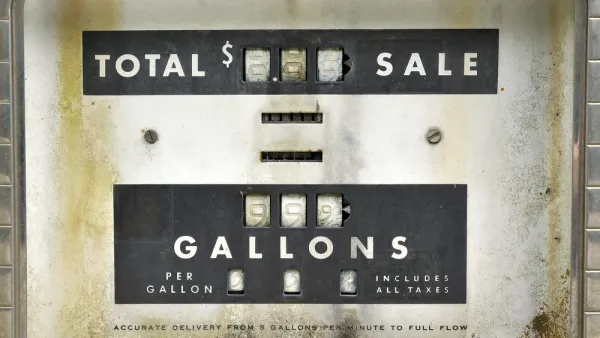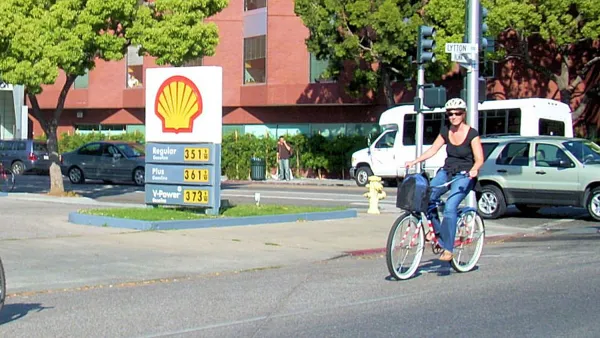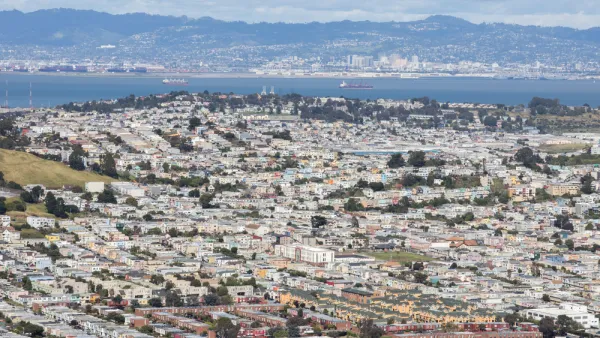It was not your basic fuel tax hike. Utah voters were told that raising the tax would help education by redirecting revenue from the General Fund to schools that currently goes to transportation. Yet voters also passed decidedly liberal initiatives.

As posted earlier, nearly 54 percent of Missouri voters rejected a 10-cents per gallon gas tax hike placed on the ballot by the legislature that would have funded roads and law enforcement. While Proposition D had its complications, the Utah measure likely proved even more troublesome for voters.
"Utah voters rejected a nonbinding opinion question that asked whether the Utah Legislature should to raise the gasoline tax by 10 cents a gallon to provide more funding for education and local roads on [Nov. 6]," reports Marjorie Cortez for Deseret News. Almost 66 percent of voters voted "No" to the advisory question that was placed on the ballot by the legislature.
Austin Cox, campaign manager for Question 1, said the ballot question was confusing for voters because it was nonbinding, that revenues would be shared with local roads, and historically, fuel tax has not funded education.
As posted in September, the Beehive State, like most states, places constitutional restrictions on the spending of gas tax revenue, generically referred to as transportation lockboxes. "In fact [pdf], Alaska is the only state to not have statutory or constitutional restrictions on transportation revenue diversion," according to the Eno Center for Transportation.
Had voters approved Question 1, the gas tax revenue would have gone to roads, but it "would offset general fund earmarks that, in past years, have gone to transportation projects and ostensibly make more General Fund revenue available for education," explains Cortez. The offsetting mechanism illustrates the extent to which state governments subsidize roads, i.e., proving that roads are not entirely funded by dedicated user fees but are dependent on general tax revenue.
Supporters...campaigned on the premise that the average driver would pay just $4 a month more in fuel tax, which would generate more than $100 million annually for public education, the equivalent of $150 per student. Higher education would receive $25 million annually while local road funding would increase $55 million per year.
Campaign finance and path to the ballot
Supporters, primarily Our Schools Now, the group backing the measure, raised almost $1.3 million. Opponents, including Americans for Prosperity – Utah, did not list any contributions.
Our Schools Now was going to place an initiative to hike income and sales taxes to fund education on the ballot, but they stuck a deal with the legislature which resulted in Question 1.
"This has been a very complicated message from Day 1. As soon as we made a compromise with the Legislature, we immediately saw support (for the former citizen's initiative Our Schools Now) decrease and we knew it was going to be a challenge," said Cox.
Voters approve progressive initiatives
When it came to other ballot measures, Utahans showed a surprisingly progressive orientation:
- Approving the legalization of medical marijuana initiative by almost 53 percent,
- The expansion of Medicaid initiative under the Affordable Care Act by nearly 54 percent,
- The Independent Redistricting Commission Initiative appears to be narrowly losing, though it's too close to call.
Still, that's a far cry from rejecting a school fund measure, albeit one that hikes gas taxes, by almost 66 percent. Why the disconnect?
Related in media:
- Governing: "Transportation Funding Changes Fail at the Ballot Box" – Voters in Colorado, Missouri and Utah rejected new money sources for roads, while Californians opted to keep a recent gas tax hike, Nov. 7.
- Salt Lake Tribune: "Obstacles that we couldn’t overcome’: Ballot question to boost gas tax for Utah schools falls short," Nov. 7.
-
Missouri legislators approved a bill at the end of the legislative session to place a 10-cents per gallon gas tax increase on the ballot to fund road repair. It had the support of Gov. Mike Parson but was rejected by nearly 54 percent of voters.
-
Voters in Four States to Decide on Transportation Sales and Fuel Taxes, September 28, 2018Californians will determine whether to repeal recent fuel tax and user fee increases; Missourians to vote on a 10-cent gas tax hike over 4 years; Coloradans whether to hike the sales tax, and the most interesting measure will be decided in Utah.
FULL STORY: Utah voters reject nonbinding question for gas tax hike to help fund education

Analysis: Cybertruck Fatality Rate Far Exceeds That of Ford Pinto
The Tesla Cybertruck was recalled seven times last year.

National Parks Layoffs Will Cause Communities to Lose Billions
Thousands of essential park workers were laid off this week, just before the busy spring break season.

Retro-silient?: America’s First “Eco-burb,” The Woodlands Turns 50
A master-planned community north of Houston offers lessons on green infrastructure and resilient design, but falls short of its founder’s lofty affordability and walkability goals.

Test News Post 1
This is a summary

Analysis: Cybertruck Fatality Rate Far Exceeds That of Ford Pinto
The Tesla Cybertruck was recalled seven times last year.

Test News Headline 46
Test for the image on the front page.
Urban Design for Planners 1: Software Tools
This six-course series explores essential urban design concepts using open source software and equips planners with the tools they need to participate fully in the urban design process.
Planning for Universal Design
Learn the tools for implementing Universal Design in planning regulations.
EMC Planning Group, Inc.
Planetizen
Planetizen
Mpact (formerly Rail~Volution)
Great Falls Development Authority, Inc.
HUDs Office of Policy Development and Research
NYU Wagner Graduate School of Public Service




























